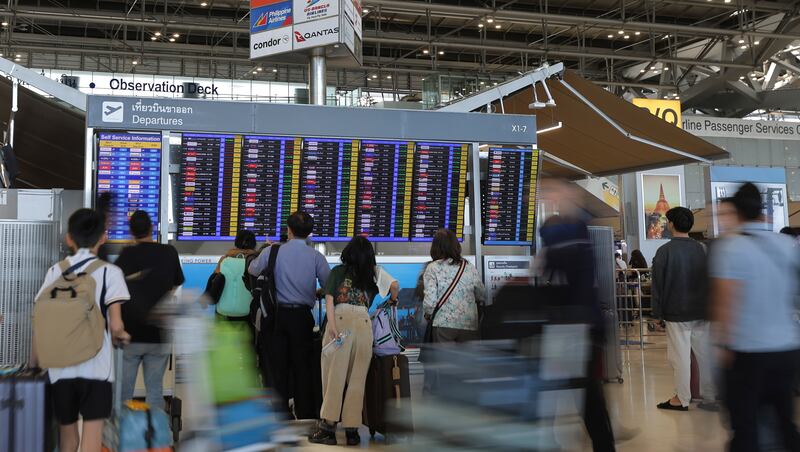After a border clash that resulted in numerous deaths and forced the relocation of hundreds of thousands, Thailand and Cambodia reached an “immediate and total truce” on Monday,The Washington Post reported.
The truce will start at midnight local time, said Malaysian Prime Minister Anwar Ibrahim, who played a role in facilitating the ceasefire deal, during a press conference on Monday.
As tensions escalated last week, the U.S. Department of State released travel alerts for Thailand and Cambodia. Here’s what you need to know about visiting these countries at this time, along with details on the conflict’s origins and the ongoing truce.
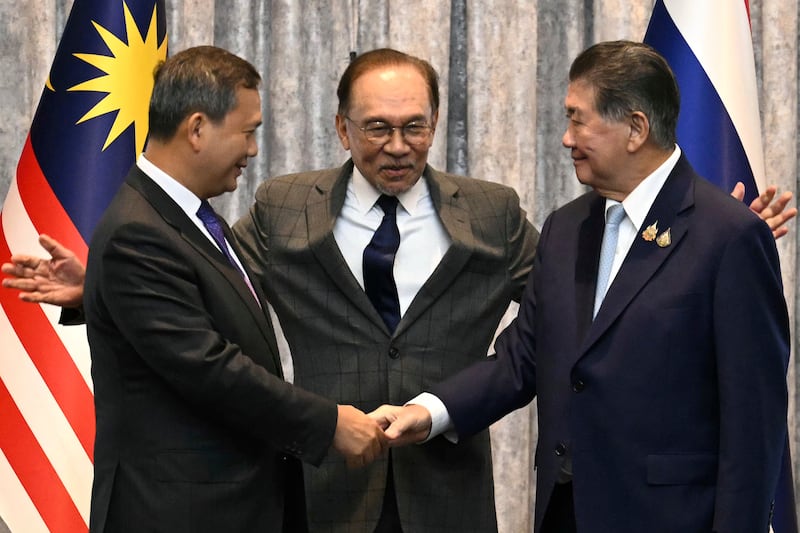
What is the reason behind the travel warning for Thailand and Cambodia?
The State Departmenttravel warnings were issued on Friday for Thailand and Cambodia as tensions escalated between the two countries.
Regions within 50 kilometers of the Cambodia-Thailand border have been classified as “Level 4: Avoid Travel” by the State Department.
“Reports indicate clashes, including rocket and artillery fire, between Cambodian and Thai forces along the border,” according tothe advisoryViolent clashes have resulted in deaths among civilians, and the Thai government has mandated the relocation of people from specific regions.
Beyond the border regions, the warning levels for both nations were raised to “Level 2: Exercise Greater Caution” because of the threat of “unrest.”
What caused the conflict between Thailand and Cambodia?
Even though the conflict escalated last week, Thailand and Cambodia have a history of disagreements regarding their common border, as reported byThe Associated Press, including disputes regarding the ownership of an ancient Hindu temple, Preah Vihear.
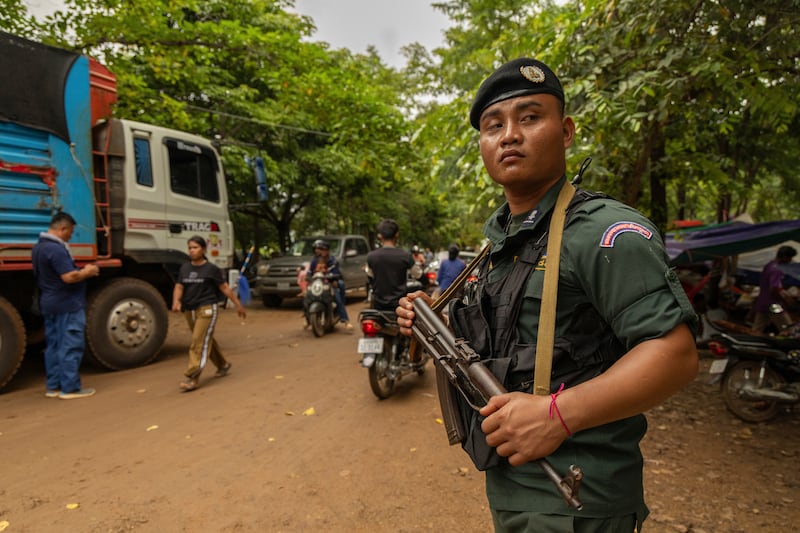
Hostilities escalated in May of this year, when a Cambodian soldier was killed following a brief exchange of fire between Thai and Cambodian forces in a border region, according to theAP.
This month, Thailand’s prime minister, Paetongtarn Shinawatra, was suspended by a Thai court following remarks she made during a phone conversation with Cambodian leader Hun Sen regarding the border, where she seemed to criticize the Thai military.The New York Times reported.
However, the tension escalated last week following an explosion at a mine along the border, resulting in the deaths of five Thai soldiers.
Both nations have attributed the increase in tension to one another, which started last Thursday, according tothe TimesThailand asserts that Cambodia launched rockets into residential zones, while Cambodia is alleging that Thailand initiated fire against its military personnel.
At minimum, 35 individuals have lost their lives and more than 260,000 people have been forced to leave their residences due to the most recent fighting, as reported bythe AP.
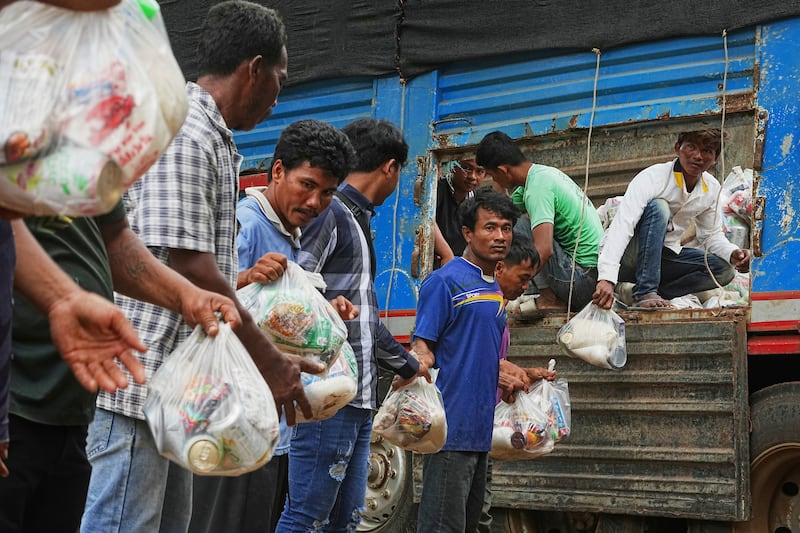
What you should be aware of regarding the ceasefire between Thailand and Cambodia
Cambodia and Thailand reached a truce on Monday, following discussions held in Malaysia with officials from China and the United States present,The Washington Post reported.
The acting prime minister of Thailand, Phumtham Wechayachai, and the prime minister of Cambodia, Hun Manet, exchanged handshakes following their face-to-face ceasefire discussions, according tothe Times. The next steps in the ceasefire agreement involve a meeting with military officials on Tuesday, which – if both parties reach an agreement – will be followed by a gathering in Malaysia and another in Cambodia on August 4.
According to the Post, Hun Manet stated he wished the discussions would “end immediately the fighting that has resulted in numerous lives lost, injuries, and also led to significant displacement of people.”
Phumtham stated that President Donald Trump called to extend his congratulations following the announcement of the ceasefire, according tothe AP.During the conversation, Phumtham expressed gratitude to Trump for his “significant role” in reaching a deal.
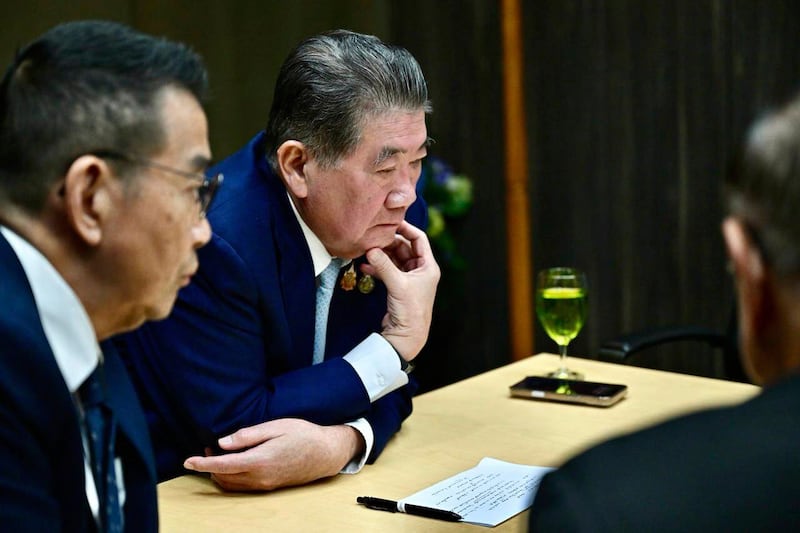
On Saturday, Trump contacted both Phumtham and Hun Manet, warning that he would halt discussions on trade agreements involving tariffs with the nations unless the conflict ceased, according tothe Times, and Secretary of State Marco Rubio also had discussions with officials from Thailand and Cambodia over the weekend.
The United States supports the ceasefire agreement between Cambodia and Thailand that was announced today in Kuala Lumpur,” Rubio stated in a Monday release. “President Trump and I are dedicated to an immediate halt in hostilities and anticipate that the governments of Cambodia and Thailand will fully uphold their promises to conclude this conflict.

